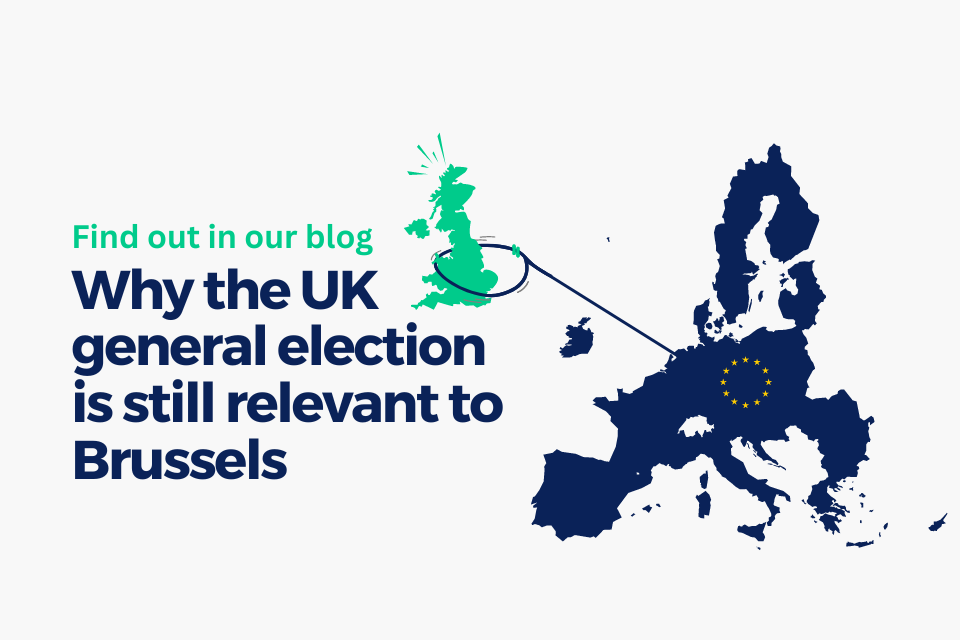Health Agenda Under the Belgian Presidency
An ambitious programme against a complex geopolitical backdrop.
Battle lines for the European elections in early June next year are already being drawn up. One over-arching campaign conflict will be between those parties and countries that favour national, populist solutions to crises and others that promote a collective, shared response. We saw this play out during the Covid pandemic and the subsequent #NextGenerationEU programme to beat the recession.
At the same time, in a geopolitical environment dominated by Sino-American rivalry, Europe seeks to be a third pole by promoting collective crisis management on a global scale while building up its own secure economic base via measures such as reshoring of manufactures like batteries. But also, medicines and other pharmaceutical products. Arguments over open strategic autonomy (promoted by President Macron) between interventionists and proponents of free trade and market solutions are now in open season.
These tensions are mirrored in the extremely ambitious agenda of the Belgian government, and we have had a preview of what they have in store for their Presidency’s healthcare pillar. Its scale and the scope of the priorities it sets underline how far health has shot up the list of critical issues for the EU since the pandemic. And it is unashamedly pro-health union. Indeed, it wants to see big progress made towards achieving it.
Leading the charge on addressing unmet health needs.
In their priorities, the Belgian government clearly outline their desire for the EU to take a proactive lead over availability and accessibility of medicines. Belgium sets great store by Europe’s focal role post-pandemic in ensuring robust health systems. Their crucial areas are fostering the security of supply of medicines, urgent action over antimicrobial resistance – in the face of warnings it could kill ten million across the globe yearly by 2050 – and, last but not least, measures to address unmet medical needs.
Specifically, on the ‘hot topic’ of addressing unmet needs in healthcare, Belgium has lately taken centre stage. Since the publication of the European Commission’s proposal on a revision of the pharmaceutical framework, which includes it as a key component of the incentive system, unmet medical need has sparked an intense debate in EU health policy. Leading the Commission’s push, EU Health Commissioner Stella Kyriakides has championed the idea of offering data protection incentives for medicines that address unmet needs as a way of encouraging the industry to fill gaps in healthcare innovation. However, industry voices warn that a narrow definition with rigid criteria could stifle innovation rather than encourage it.
Unveiled in August 2023, ‘Project NEED,’ is a significant Belgian initiative designed to establish an independent scientific framework for identifying and documenting unmet needs. ‘NEED’ is a national collaborative effort aiming to validate a scientific method for shifting healthcare systems from supply-driven to more patient-centric, needs-driven models. With results expected in the first half of 2024, this initiative has the potential to influence the debate on the topic significantly. All eyes on 17 and 18 April next year, when the Presidency’s special meeting on ‘healthcare needs as drivers for policy and innovation’ will take place.
Towards a Critical Medicines Act
Throughout their tenure, the Belgians aim to make progress on legislation and policy around Europe’s Beating Cancer Plan, the European Health Data Space and the first overhaul of Pharma Regulation for over 20 years. While digital discussions are dragging on, Brussels will focus its pharmaceutical push on Unmet Medical Needs, with a dedicated conference in April, which could pave the way for Council discussions. But the draft agenda makes no mention of the Critical Medicines Act, as put forward by Belgium in a recent non-paper and eloquently promoted by Belgium’s own health minister Frank Vandenbroucke. Nevertheless, the Commission has now publicly stated the intent to work towards such an Act, starting with several initiatives which would complement the ongoing pharmaceutical reforms and prevent shortages this winter and beyond.’ Among the initiatives pitched in an official Communication, published October 24th, was the introduction of a much-discussed list of critical medicines, which will be published by the end of the year., was the introduction of a much-discussed list of critical medicines, which will be published by the end of the year.
Vandenbroucke, the Belgian health minister, who was instrumental in persuading 20 other EU member states to back the concept of a Critical Medicines Act, says it will serve three goals: ” (1) to reverse the general negative trend of declining production of off-patent medicines in Europe, (2) to diversify our pharmaceutical supply chains, and (3) to secure some degree of “strategic autonomy” for certain critical medicines.”
Vandenbroucke’s used words cautioning against national go-it-alone policies are highly germane: “A European coordinated approach would be less costly and much more efficient than a scenario where member states go their own way. Moreover, a fragmented, national approach would negatively affect smaller or poorer member states who are not able to hand out large sums to expand their domestic industry. The Commission should use the current momentum and propose a Critical Medicines Act for Europe. We have no time to lose.”
Concluding remarks: No time to lose is the common refrain. The key question is how much progress Belgium can achieve before the elections on June 6-9, 2024. It has certainly set the bar very high.
Written by Senior Advisor, David Gow.


